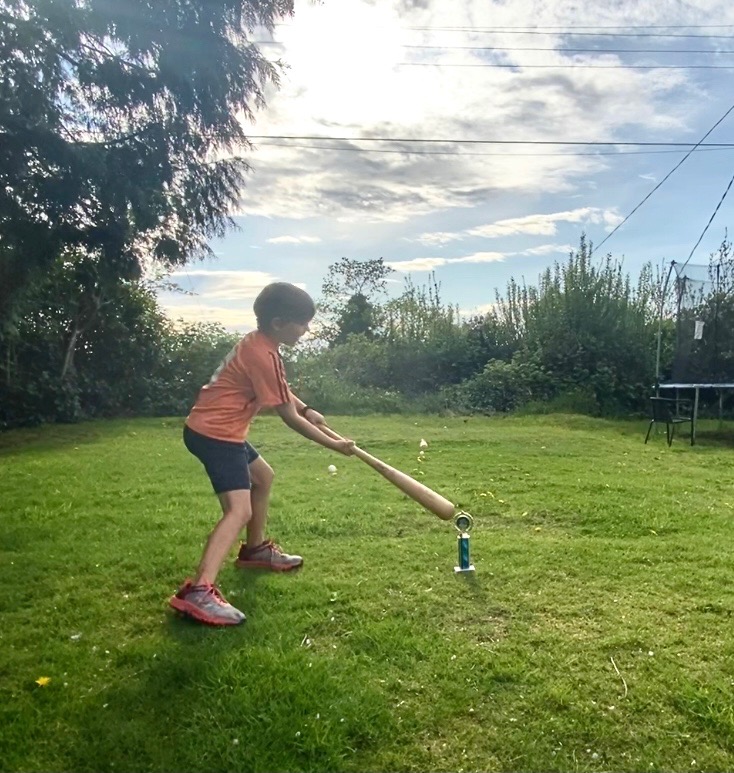On my son’s 7th birthday I took him on a trip to mark and celebrate the terrain of his soul: play and exploration. We flew to Orlando, took countless runs down a waterslide called Summit Plummet (120 feet drop at 60mph) and then went to the NASA Kennedy Space Center the next day to hang out with an astronaut and learn about the latest in rocket developments. It is a trip I will never forget.
Rupture & Repair
I was repairing a lot a year ago, but my repair began to feel like a yo-yo. I’d rupture and then seek to make amends for my mistake. Unfortunately, my repairs were doing little to address why I kept creating ruptures. After yet another rupture and repair cycle, my son said to me, “You keep saying you’re sorry. Don’t say it if you’re going to do it all over again tomorrow.”
His words cornered me with the need to do some deep work to move beyond the failure and apology yo-yo I created. I needed to understand why his disruption was so disruptive to me. I found my reasons, which I will not discuss here, but I knew my son was inviting me to welcome not just his play and exploration, but also his disruption. After two weeks of exploring my relationship to disruption, I went to my son and said, “What do you want to break? How about once a week you figure out what you want to destroy or disrupt and I will see what we can do. I’ve made your desire for disruption to be bad, but it is deeply good. I asked you to change so I would not have to.”
He thought about my offer for five seconds and then said, “I want to destroy your trophies.”
At the time, we were preparing to move from Seattle to NYC and I was I was sorting through bins from my childhood to determine what I would keep. Inside one of the bins was a trophy I received when I finished 2nd in the State of Virginia for my science project (Hydrogen Based Technology For A Cleaner More Sustainable Environment ![]() ).
).
I guffawed when he asked me to sacrifice my trophies. I could not think of any greater ending to my time with them. “Ok, go for it” I said. He grabbed a baseball bat my dad had given me from the Louisville Slugger factory. He set the trophy in the center of our backyard and obliterated it. I’ll never forget his laugh, “Dad, your trophy is cheap plastic!”
Disobedience Needs to Be Honored
The Golden Child and The Scapegoat
A rigid home has excessive regulation. There is often one parent who rules the family with an iron fist. The parent demands compliance, but he or she is compliant to no one. Children in these homes learn that rules are not like barriers around the Grand Canyon to keep people from dying; they are more like scarlet letters given to shame others into compliance. To survive, you comply or depart, often in dramatic fashion.
Growing up in a rigid family system begets children who are often split off as either good or bad. Whether you became the golden child or the scapegoat, your life reveals the pathology of a rigid family system. The scapegoat may look out of control, but if you listen to what drives his behavior and defiance, you will hear an honesty that rivals the truth-telling capacity of a biblical prophet. He refuses to live in a family that demands unquestioned loyalty to the tyranny of rigidity, and, sadly, often squanders so much of his life in defiant protest long after he leaves home. The destructive consequences of his actions will certainly need to be engaged, but the recovery process of the scapegoat is far easier than the golden child’s journey out of a life of self-righteousness and hiding.
The golden child’s strategy is to deny the truth of a rigid system through presenting a perfect image to the world at the cost of his soul. He learns that compliance and competence allow him to maneuver as a saint withinn the rigid borders of his family. Although he may be struggling with depression or porn, he correctly discerns that revealing these struggles would be far too costly. He defaults to presenting a perfect public self and elects to keep the painful dimensions of his life beyond detection.
The Impact of Rigidity on Unwanted Behaviors
Rigid family systems shape the particular sexual fantasies and behavior men and women pursue. 53% of my survey respondents said that their fathers were too strict and focused on rules. Men who grew up with strict fathers were more likely to develop fantasies of power over others in the porn they pursued. This included people who were younger, smaller body types, and those from another race who appeared, to them, submissive. The implication is that sons who were powered over tended to grow up to men who desired power over others.
Around 50% of my survey respondents said their mothers were too strict and focused on rules. Women who wanted to be used or have harm done to them in their sexual fantasies were 2.5x more likely to have had a strict mother. The implication was that daughters who were powered over tended to grow up to be women who had harm or cruelty reinforced on them in their sexual lives. In men and women alike, family systems of rigidity set children up to be adults who wanted to either reverse or repeat the power dynamics of their youth.
The key point to remember here is that anger escalates in rigid family systems. Rigidity puts you in a bind. On one hand, you are powerless, and on the other hand, you have so much evidence against your dysfunctional family system. If you speak, you will be exiled and orphaned. If you don’t speak, you reinforce how powerless you feel. When you are powerless, be on high alert for where anger might appear. Porn and other unwanted behaviors appeal to the powerless precisely because it gives their anger an arena to be on full display. In your day-to-day life you may feel powerless, but in the world of the Internet, you can have whatever you want.
In my individual intensives, one of the realities each participant must engage is their view of their childhood self. As you can imagine, most people are not terribly fond of themselves, whether as an adult or as a child. Typically there is a moderate to severe judgment against themselves. Commonly, people say things like, “I was bad.” “I couldn’t stop arguing with my dad.” “I wanted too much.” “I was an angry kid.” “I was too sensitive.” But in their indictment against their childhood self, they never stopped to be curious about the dignity embedded within their defiance. It is quite possible that a child or adolescent’s resistance, anger, and even unwanted sexual behaviors were the very thing that kept them from being ruled by a tyrant.
Reclaiming Your Dignity
This is the razor edge of healing: Your unwanted sexual behavior must change, but it also needs to be honored as a symbol of all the unprocessed anger of living in a dysfunctional system. Instead of destroying your integrity, ask yourself what trophies and systems within your family of origin most need to be exposed. Anger has to go somewhere. It can either be the fuel for unwanted behaviors or it can be the radar that alerts you to the harm that needs to heal. We pass on the pain we do not transform.
I am taken aback that I have a son who knew enough not to eliminate his desire through compliance to my will. I want to be like him as I get older. Equally so, it is an honor of a lifetime to continue to invite him to expose rigid and unjust systems with increasing courage and playfulness. Compliance and self-destructive behaviors both lead to the death of desire. Therefore, we do this work not to blame our parents or other systems of authority, but to reclaim the dignity of who we are.
For reflection:
- Would you characterize your family as rigid? If so, what examples do you recall?
- What were trophies/gods of your family? How might you have attempted to expose or smash them?
- Recall a time when your anger led you to pursue unwanted behavior.
- If you’re wondering what role rigidity and anger might be playing in your unwanted behaviors, take the Sexual Behavior Self-Assessment
ABOUT THE AUTHOR:

Jay Stringer is a licensed mental health counselor and ordained minister. Jay’s award-winning book Unwanted was based on research on nearly 4,000 people struggling with unwanted sexual behaviors like the use of pornography, extra-marital affairs, and buying sex.
Stringer holds a Masters of Divinity and Masters in Counseling Psychology from the Seattle School of Theology and Psychology and received post-graduate training under Dr. Dan Allender while serving as a Senior Fellow at the Allender Center. Jay lives in New York City with his wife and two children. To learn more about Jay visit his website at www.jay-stringer.com.



